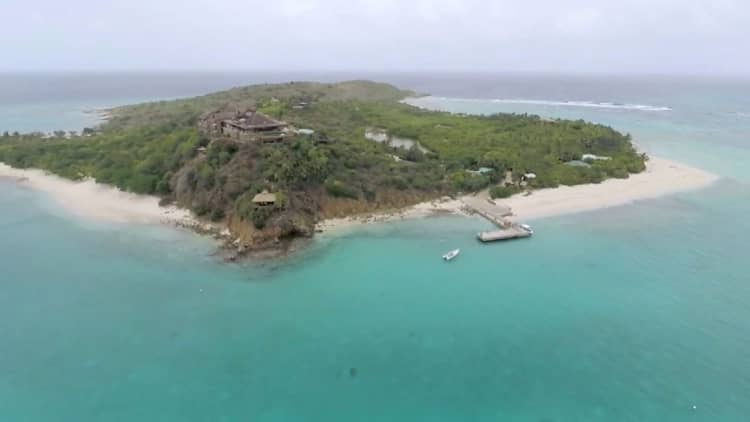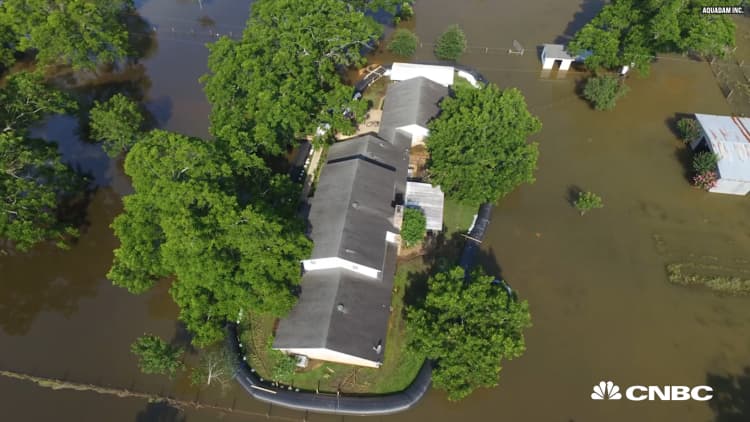Richard Branson rode out Hurricane Irma on his private Caribbean island, and though he survived bunkered down in his concrete wine cellar, he emerged to discover that his Necker Island and the rest of the British Virgin Islands were ravaged.
While Branson, a multi-billionaire, is in a much better position than most, according to his updates, the islands that make up the British Virgin Island territory are in dire need of help. He has been working to coordinate relief efforts for the region.
"I must repeat the unique nature of the challenge in the BVI, which suffered under the full effect of the strongest Category '7' hurricane ever to hit the Atlantic," Branson says, emphasizing the seriousness of the weather event. (In reality, the National Hurricane Center rates storms according to their severity as high as category 5.) "[The islands are] isolated from outside help. The entire country is unable to function properly, with tens of thousands of people having lost their homes and livelihoods," he says via his blog.
"There is an extreme sense of urgency to get food, water and aid supplies into the BVI, and we are bringing as much as we can. Once people have these, restoring order and calm to the islands will be far quicker and simpler."
After the storm, Branson left the British Virgin Islands for Puerto Rico to meet with local leaders and plan the delivery of aid including food, water, medical supplies, sanitary supplies, building materials and blankets. His airline, Virgin Atlantic, is making flights to deliver aid both independently and in coordination with governmental relief agencies. Also, Puerto Rico has offered to help fly in relief aid.
Tuesday, Branson traveled back to the British Virgin Islands.
"We are trying as hard as possible to get as much food, water and aid in as possible," says Branson via his blog. One airport is open and usable and the assembled relief coordination team is considering airdropping in aid, too.
One of the most immediate problems is that the extreme weather cut off lines of communication.
"The lack of communications within the BVI remains a large problem. Without reliable communications it is really difficult to be able to help people," says Branson. "We now have a satellite phone with WiFi that we hope will work – if it does I will be able to stay on in the BVI. If not, I will need to soon return to Puerto Rico to continue mobilising aid." Branson used a satellite phone to post updates to his blog as rode out the storm in his wine cellar.
The vast inequities of a billionaire blogging his way through a hurricane compared to the struggles of the majority of British Virgin Island residents has not gone unnoticed. For example, Mariana Mazzucato, a Professor in the Economics of Innovation & Public Value and Director of the Institute for Innovation and Public Purpose at the University College London, called out this inequality in a piece she penned for The Guardian. She suggests wealthy individuals and corporations who shelter their money in the Caribbean help fund the rebuild.
Though the devastation is brutal and the perception of his efforts has not been all kind, Branson says he is encouraged by the outpouring of support for the British Virgin Islands.
"It's been truly heartwarming to witness the global outpouring of support for the communities across the Caribbean that have been hit hardest by Hurricane Irma," he says. "We've received hundreds of emails from people across the world who share our love of the BVI and its wonderful people and who are willing to make their resources available to help in whichever way they can."


Like this story? Like CNBC Make It on Facebook.


